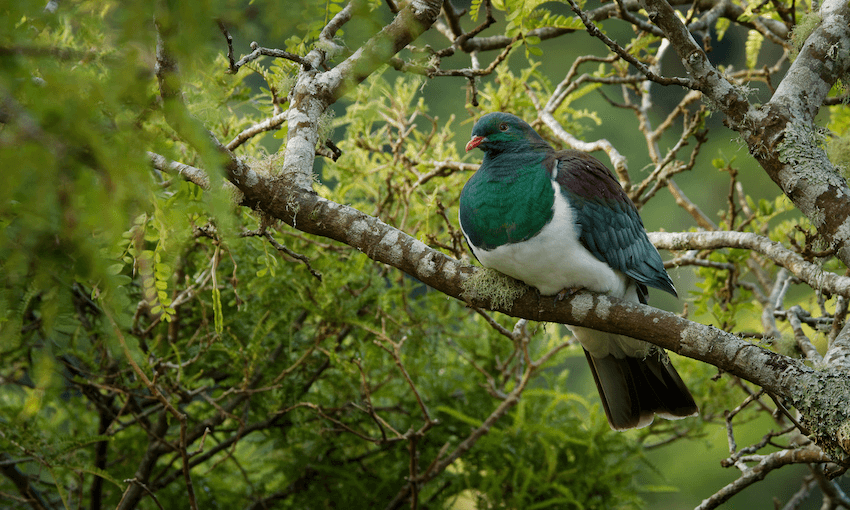A campaign is moving the United Nations toward recognising a right to a safe environment. Dozens of countries are on-board. Why isn’t New Zealand part of it, asks Sam Bookman.
The world is facing multiple environmental crises. Hundreds of animal and plant species are threatened with extinction; deforestation in many parts of the planet continues at an alarming rate; and climate change poses an existential threat to human survival. As a species, human beings have exceeded four of the world’s nine planetary boundaries.
Confronting crises of this scale requires action on multiple fronts. But fighting to protect the environment can be difficult and dangerous. In 2019 alone, more than 200 people across the world were killed for their defending their environments. Many of those killed are poor or indigenous activists in the Global South, fighting against land-grabbing and extractive industries. In 2016 one of the world’s best-known environmental defenders, the Honduran activist Berta Cáceres, was gunned down in her home on the orders of company executives, in retaliation for rallying her community against the damming of a sacred river. Many of those responsible have still not been held to account.
Meanwhile, environmental protection at the international level is fragmented across a plethora of treaties and agreements. There are very few opportunities for communities to get involved, or to bring their struggles to the attention of the international community. Decisions are often made by states behind closed doors, and people’s rights – to participate in key decisions, to be protected in their environmental work, and to hold their states accountable to their environmental commitments – are often ignored.
A change of direction is needed. In response to these shortcomings, a coalition of states, NGOs and activists have been working for decades to get the UN to recognise a right to a safe, healthy and sustainable environment in international law. And they are making progress: momentum is growing in both the Human Rights Council (the UN’s top human rights forum) and the General Assembly (the UN’s main representative body) to recognise such a right. At the most recent meeting of the Human Rights Council, 69 states announced their support for the campaign, together with hundreds of NGOs and 15 UN agencies. Curiously, New Zealand was not among them.
An internationally recognised environmental right would open up a range of tools for greater action on environmental problems. Environmental defenders facing harassment and persecution could hold their governments to account and bring their claims to the attention of international tribunals and rights bodies. And voters, parliaments and courts across the world could draw on international law to demand greater action on environmental crises, strengthen environmental laws, and ensure the participation of vulnerable communities in environmental decisionmaking. A broad environmental right could also help fill unintended gaps in environmental regulations, which are often technical and narrowly-drawn.
Recognition of environmental rights in international law is no panacea. Opponents of such a move have raised concerns that it could be ineffective, or lead to unhelpful litigation. While environmental advocates should be attentive to such risks, the benefits are overwhelming. Perhaps most importantly, recognition would send a message that environmental interests are of the utmost importance, at least as important as other fundamental rights recognized in international law.
So why is New Zealand MIA? We can only speculate. New Zealand diplomats have been largely absent from the international conferences and meetings, not voicing an opinion one way or another. Several of New Zealand’s close diplomatic partners have opposed recognition.
It may simply be that New Zealand’s relatively small diplomatic corps does not have resources to devote to this issue. In a cryptic statement, an MFAT spokesperson told me that “New Zealand cannot engage on all issues and must prioritise engagement”, and that “while we did not join this statement we remain attentive to the debate”.
New Zealand’s absence has been noticed. The UN’s in-house expert on human rights and the environment, David Boyd, told me that “We all need clean air, clean water, healthy food, a safe climate and healthy ecosystems, not just to survive but to thrive. To live up to its image as a champion of human rights and a sustainable environment, the time is now for New Zealand to join the push for UN recognition of the right to a healthy environment.”
New Zealand is seen by many as a leader on environmental and human rights issues, and global respect for Jacinda Ardern gives her outsized influence: she was recently invited by President Biden to virtually address a high-level climate summit of many of the world’s most powerful governments. Support would also send a signal to our Pacific neighbors that New Zealand takes environmental crises seriously, elevating concerns that small island states have been highlighting for years. And it would challenge our traditional partners, many of whom – such as Australia, Canada, the UK and the US – have failed to declare their support.
While it’s understandable that small countries like New Zealand need to ration diplomatic resources, the scale of environmental problems should place these issues near the top of the priority list. New Zealand must strongly and publicly endorse the call for an internationally recognised environmental right.
Sam Bookman is a former New Zealand lawyer, currently a doctoral student and a fellow at a New York-based legal nonprofit. In the latter role, he has provided some research support to the campaign discussed in this article.

